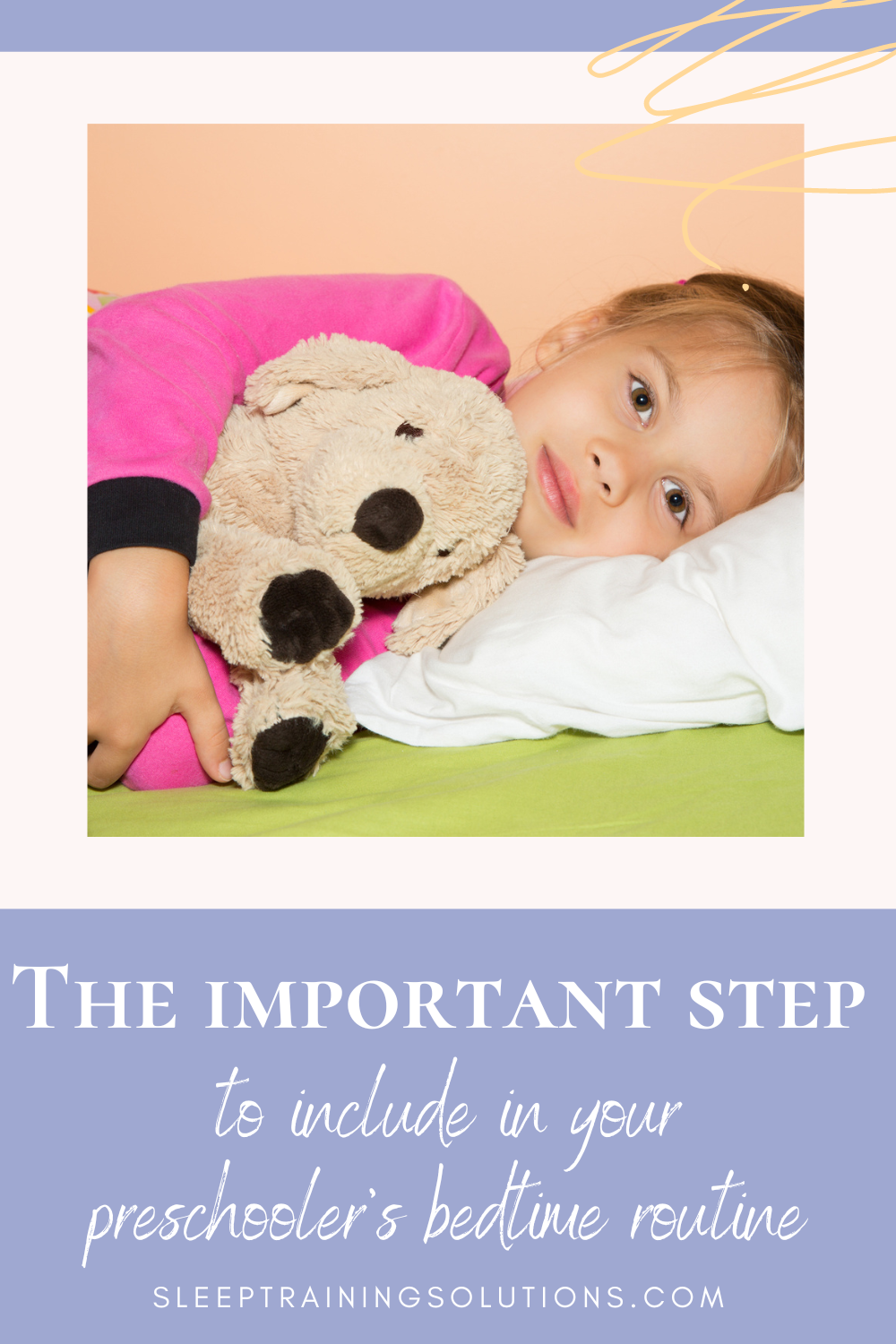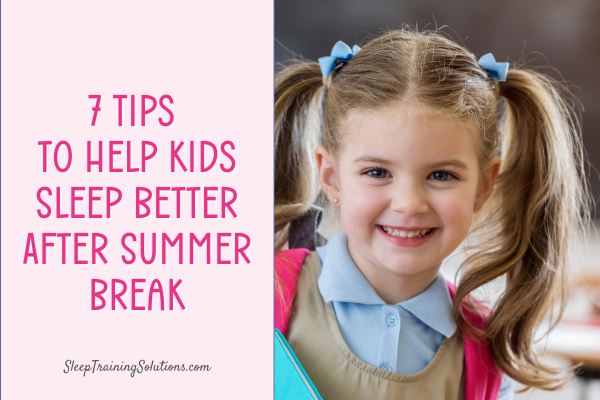The important step to include in your preschooler’s bedtime routine
I often say sleep training babies is a sprint and sleep training toddlers and preschoolers is more like a marathon.
Babies don’t yet have strong, ingrained habits so when you do sleep training by offering sleep in the right window, removing sleep props and being consistent with routines, you’ll typically see results fairly quickly.
Toddlers and preschoolers, on the other hand, are a whole different ballgame!
In most cases, they’ve developed habits over the past several months (or years!) that need to be undone, which doesn’t happen overnight. They can talk and negotiate, and they also understand cause and effect – meaning if they scream loud enough at 2am, you’ll come running because you don’t want them to wake up their sibling! It also takes a bit longer for them to wind down at the end of the day because their days are full of activity.
Sleep training at this age is more complex, but the first step is always a great bedtime routine. Most people think bath and books is an adequate routine for preschoolers, but reflecting on the day can make a world of difference.
It helps your child process the good and any bad from the day and end on a positive note with 1-1 time with a parent who is not distracted by other family members, their cell phone, making dinner or work obligations. That combination of being able to process the day’s events and have a parent’s undivided attention is the ideal combination for a last step in the bedtime routine.
Here are three questions I encourage you to incorporate into your preschooler’s bedtime routine for this reflection time:
What happened today that was good?
In the beginning, you may need to provide prompts: Did your teacher tell a silly joke that made you laugh? Did you help a friend do something that was hard for her to do alone? Did you have fun baking cookies with grandma? But as you have these conversations each night before bedtime, they’ll likely have their one thing all cued up in their mind!
Remembering something happy from the day lets them enjoy that experience a second time by telling you about it! Over time, you’ll find your child starting to share the good thing when she’s still in the bath tub or getting PJs on because she’s so excited to start telling you about it!
Did anything happen today that made you upset, sad or confused?
Chances are good if you have an extroverted child that you’ll hear about something happening at school as soon as you pick him up. But many children, especially those who are a little more quiet and/or sensitive may still be processing what they saw/heard for a while longer.
Asking this question can help those children who are prone to ruminating over a situation or conversation and help them work through emotions associated with it. They’re in a quiet, safe space with you and have your undivided attention and will usually be willing to share.
Sometimes it might be a situation that happened to them – ie a friend didn’t want to play together at recess. By asking how that made her feel and if she can forgive her friend and try again tomorrow, it can help release those thoughts.
And sometimes it may be that they did something they weren’t too proud of – ie not sharing a toy with a younger sibling and getting in trouble. In that instance it’s helpful to talk about what they might try to do next time.
In order to not get stuck on this step and end the day on a negative note, it’s important for your child to acknowledge and then release – forgive or let it go and try for a better outcome the next day.
What are 3 things that you’re grateful for?
Ending the day with a feeling of gratitude is the best way to end the day! Ask your child what three things she’s grateful for. You might even share three yourself. You may even learn a few things that you had no idea made such an impact for your child. It’s one of my favorite things to do with my kids!
Using this “hamburger method” of good-bad-good is ideal so you’re starting and ending the conversation on a positive note.
Remember that these end-of-day chats occur within the 20-30 minute window for the bedtime routine.
And this isn’t just for preschoolers – older children and adults will find value in processing and reflecting on the day and acknowledging gratitude as well!
If this is something you’d love to do with your preschooler but you’re still dealing with stalling at bedtime and regular wanderings out of the bedroom after you’ve tucked your child in, then let’s get those behaviors changed so that you CAN start bedtime with these questions and experience this wonderful time of connection with your child…and know that your child will be sleeping shortly afterwards!
You know your child needs that extra sleep for growth and development and to help him have a nicer disposition (!) and wouldn’t it be nice to have adult time to read, clean, reconnect with your spouse…or just binge Netflix? Let’s connect and see what roadblocks your child has so we can get him falling asleep faster!
Related Posts:
This post is for informational purposes only and may not be the best fit for you, your child and/or your personal situation. It shall not be construed as medical advice. The information and education provided here is not intended or implied to supplement or replace professional medical treatment, advice, and/or diagnosis. Always check with your child’s physician or medical professional before trying or implementing any information read here.





